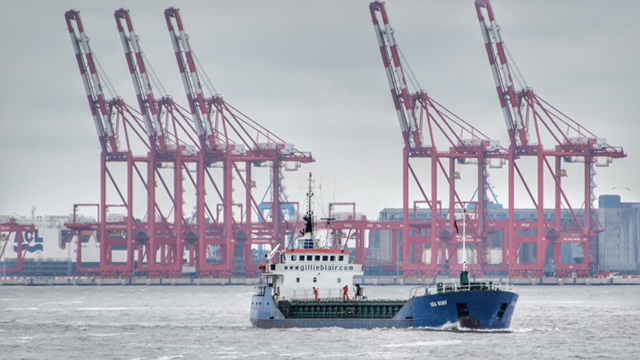Northern ports can drive post-Brexit growth – and infrastructure is essential to their success
Steve Gillingham and Richard Smedley, directors at international construction consultancy Mace Group, write for LBN on how we need to back ports such as Liverpool with investment in transport and skills

As Britain prepares to leave the European Union, it is heartening to see a renewed focus on our nation’s ports.
Our status as an island nation means we are well placed to take advantage of the revolution underway in global freight trade, enabled by recent developments such as the expansion of the Panama Canal.
Sea ports handle more than 95% of goods imported and exported through the UK and it is anticipated that there will be a significant increase in global shipping traffic over the coming years, meaning we are likely to need more capacity at key locations such as Liverpool, Hull, Grimsby, Immingham, Clydeport and Teesport.
Major investment
Here in the North of England our ports have been the subject of significant recent investment, putting them at the forefront of the current transformation of global shipping activity.
According to a recent report by the IPPR North think tank, Northern ports are ‘punching above their weight’, accommodating around 35% of total port traffic despite being home to less than a quarter of the UK population.
However, while the north has been punching above its weight in bulk cargo for years more than 90% of deepwater container traffic arrived into southern ports despite the fact that around half of those containers were heading for the north.
Potential for change
The £400m investment in Liverpool 2 to create the north’s first deepwater container terminal, which opened last year has the potential to change that and lead to more import and exports being handled in the north of England rather than the south.
But, it’s not just shipping activity increasing at our largest ports. We’ve seen the development of major new infrastructure to support growth industries, such as the Siemens wind turbine blade factory at Green Port in Hull, which supports around 1,000 new jobs and benefits numerous local businesses through the supply chain.

Transport links
If we are to ensure a bright future for Northern ports, it is vital we invest now in the infrastructure and skills to support them. Improving road links to ports must be a crucial part of this strategy.
Transport for the North (TfN) identified congestion on the M62 and other east-west routes as one of main restrictions on the growth of logistics and freight activity in Northern England.
North will get fair share of transport investment, claims Treasury minister – click to read more
Traffic and slow speeds between ports and key cities such as Manchester, Leeds and Sheffield mean freight movements in Northern England are hugely inefficient, contributing to the UK’s poor productivity performance. Increasing road capacity in key areas will be crucial to unlocking the growth-boosting potential of ports.
Road to rail
However, we also need to be less reliant on roads to service our ports. The Government acknowledges that shifting more long-distance freight from road to rail would contribute to meeting the UK’s carbon emission reduction targets, and help create up to 38,000 new jobs in Northern England by 2033.
Achieving this will require a significant investment in east-west rail connectivity in the North, and Northern Powerhouse Rail remains a prize worth pursuing. In the more immediate future, it is vital that government provides TfN with the full, statutory powers it needs to bring forward improvements to the network as part of this major project.
Skills gap
Improving skills is another key element. Our ports rely on a highly skilled and trained workforce, increasingly drawn from graduates in the STEM subjects (science, technology, engineering and maths).
However, many ports, particularly in Northern England, struggle to recruit qualified staff, and there are concerns that Britain’s exit from the European Union may exacerbate these difficulties. The Government’s emerging Industrial Strategy provides an opportunity to identify the skills needed to fill roles in our most strategically important industries, with logistics and freight surely fitting this bill.
Peel Ports looks to reach out to Mersey schoolchildren on future careers – click to read more
There should be a particular focus on improving skill levels in coastal locations such as North East Lincolnshire and the Liverpool City Region, so local communities can benefit from the opportunities provided by global trade.
We also need to make sure graduates from our world-class Northern universities see logistics as an attractive career choice. London celebrates its ports with an annual conference – why not promote the opportunities available at our own ports by creating a Northern Powerhouse Shipping Week?

Ports are critical
It is important to recognise this is not an issue that can be labelled as a purely ‘regional’ problem. Nor can ports be dismissed as one sector amongst many vying for attention as the Government navigates the journey towards Brexit.
Ports are critical to Britain’s prospects of success as a global trading powerhouse, but weak infrastructure and labour shortages risk further stifling the UK’s already tepid productivity.
Northern prosperity is national prosperity, and for our economy to be firing on all cylinders, we need to make sure our logistics industries across the country have the right infrastructure in place to support economic growth at our ports.

